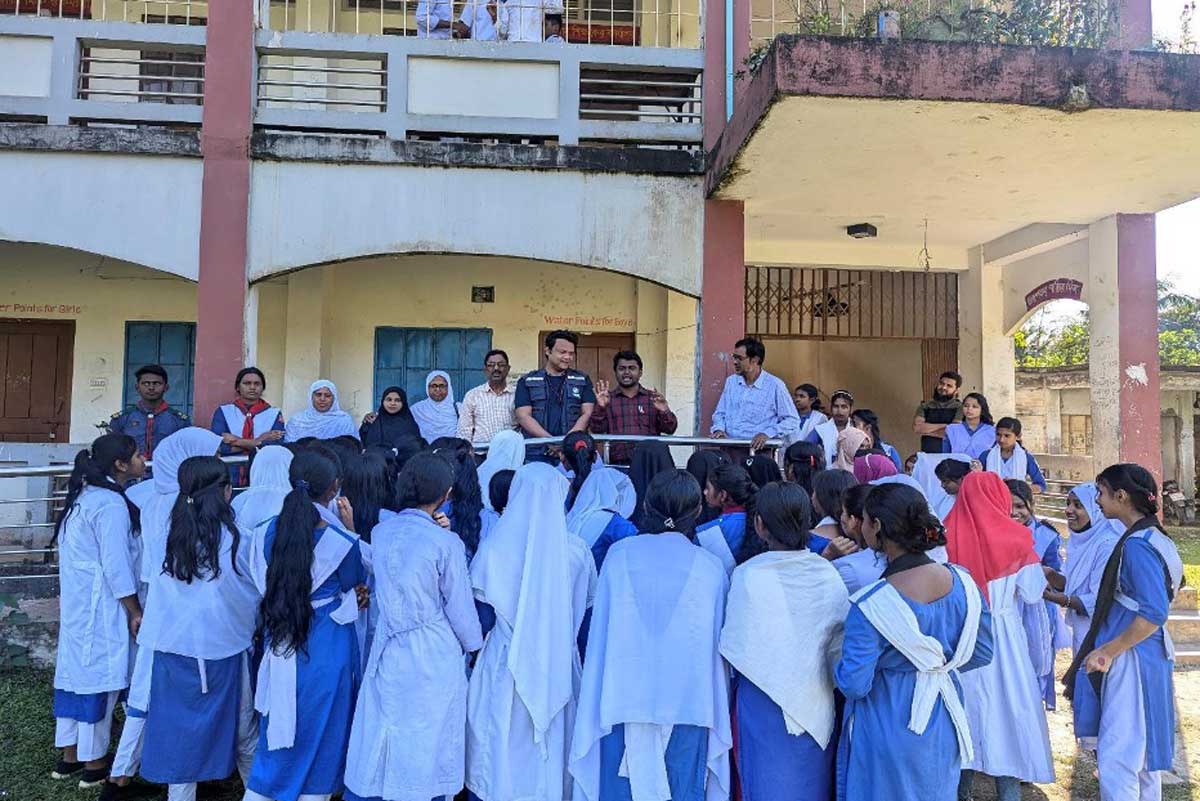Bangladesh’s remarkable journey to introduce the HPV vaccine
Earlier this month Bangladesh introduced the HPV vaccine into its routine immunisation programme, meaning millions of girls will be protected against the leading cause of cervical cancer. Dr Tanvir Hossen, of the country’s Expanded Programme on Immunization (EPI), tells us how they did it.
- 13 October 2023
- 5 min read
- by Tanvir Hossen
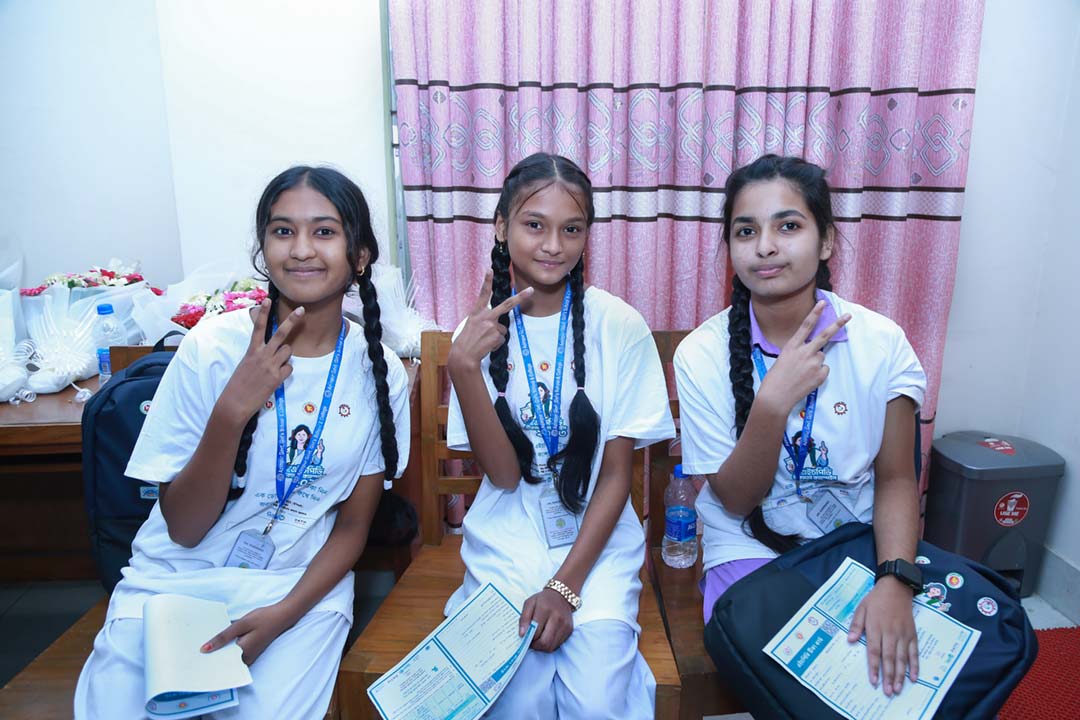
The emergence of the SARS CoV-2 virus inflicted overwhelming scenes worldwide. It was revealed once again how frail health systems are, irrespective of power, wealth, scientific advancements and so on. Like other countries, Bangladesh was faced with seemingly paramount challenges in terms of maintaining its crucial primary healthcare service delivery.
Vaccines save lives, and Bangladesh has always been a forerunner in terms of introducing new and underutilised vaccines with a core objective to reduce maternal and childhood mortality and morbidity.
Immunisation coverage came down to the lowest ever since its start in 1979. However, thanks to timely efforts made by the country, coverage was restored to the pre-pandemic level within a brief period. In addition, the country displayed remarkable will and resilience in availing and introducing COVID-19 vaccines, thanks to the groundbreaking initiative undertaken by the COVAX facility.
Vaccines save lives, and Bangladesh has always been a forerunner in terms of introducing new and underutilised vaccines with a core objective to reduce maternal and childhood mortality and morbidity.
Resonating with the core concept of the EPI, the government took initiatives towards introducing the human papillomavirus vaccine in the country, resulting in a successful demonstration project of the vaccine in 2016–17, which saw more than 85% coverage and no serious adverse events following immunisation.
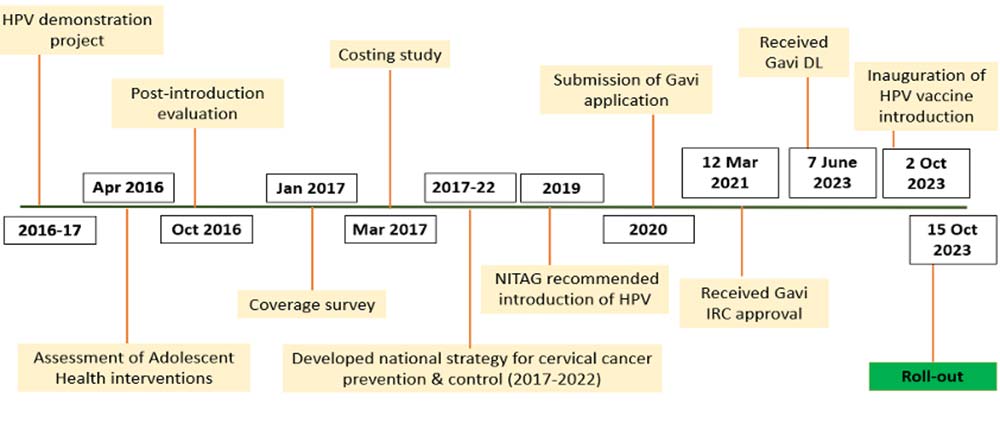
Despite the high-yielding and successful demonstration, it took quite a long time for Bangladesh to introduce the vaccine, partly due to the global supply shortage, but mostly due to the shifting of efforts towards tackling the pandemic, including COVID-19 vaccination.
After a series of meetings and reviews, Bangladesh finally received the Gavi decision letter on 8 June 2023. Immunisation decision-making bodies such as the National Immunization Technical Advisory Group of Experts (NITAG, B) and the Inter-Agency Coordination Committee (ICC) provided required recommendations and approval, while core partners like WHO and UNICEF delivered desired technical assistance. Professional bodies like the Obstetrical and Gynaecological Society of Bangladesh (OGSB) and civil society organisations provided additional support throughout the course.
The EPI started working on the introduction prior to arrival of the Gavi decision. Success achieved in a measles-rubella vaccination campaign conducted during the pandemic in 2020 and the ongoing COVID-19 vaccine roll-out attuned EPI to take up the challenge of introducing the long-awaited HPV vaccine within three months of receiving the Gavi decision letter.
On 2 October 2023, His Excellence the Minister of Health & Family Welfare, Zahid Maleque, launched the HPV vaccine introduction. Fourteen adolescent girls received their desired HPV vaccine doses during the proceedings, and the countrywide roll-out is scheduled to begin on 15 October 2023.
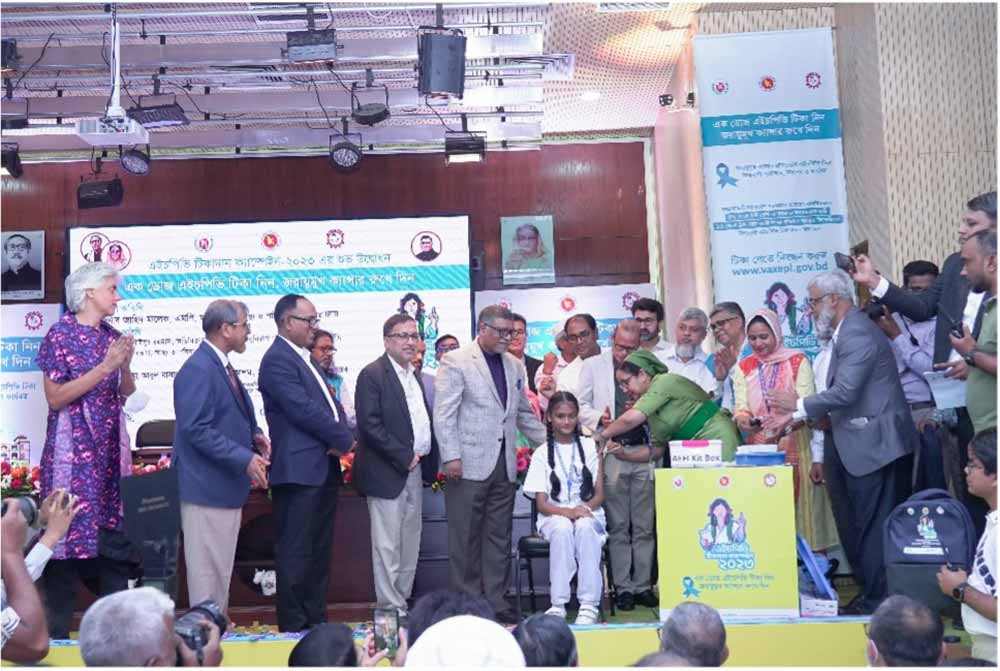
Due to the nature of interrupted vaccine supply Bangladesh adopted a multiphase campaign approach, which will take place in three phases:
Bangladesh aims to vaccinate 10- to 14-year-old girls during the campaign. Considering the nature of school enrolment, a mixed strategy has been designed where vaccination will be carried out both in schools and the existing fixed and outreach EPI centres. Girls of class five to nine will be the target population for the school-based vaccination, whereas for the community-based vaccination, other age groups will be targeted. Upon SAGE and NITAG, B's recommendation, a one-dose regimen for HPV vaccine will be followed by the country.
Have you read?
During the three-month window, EPI went through a meticulous and time-bound approach, starting with the formation of five working groups consisting of EPI, WHO, UNICEF and PATH personnel. Each group was assigned specific tasks and deliverables.
Learning from the COVID-19 vaccination experience, EPI proposed that the Directorate General of Health Services form several coordination committees at the subnational level. As a result, divisional, city corporation, district and upazila HPV coordination committees were formed upon the ministry's approval. Letters signed by the Secretary of Health were circulated to all the ministries requesting support.
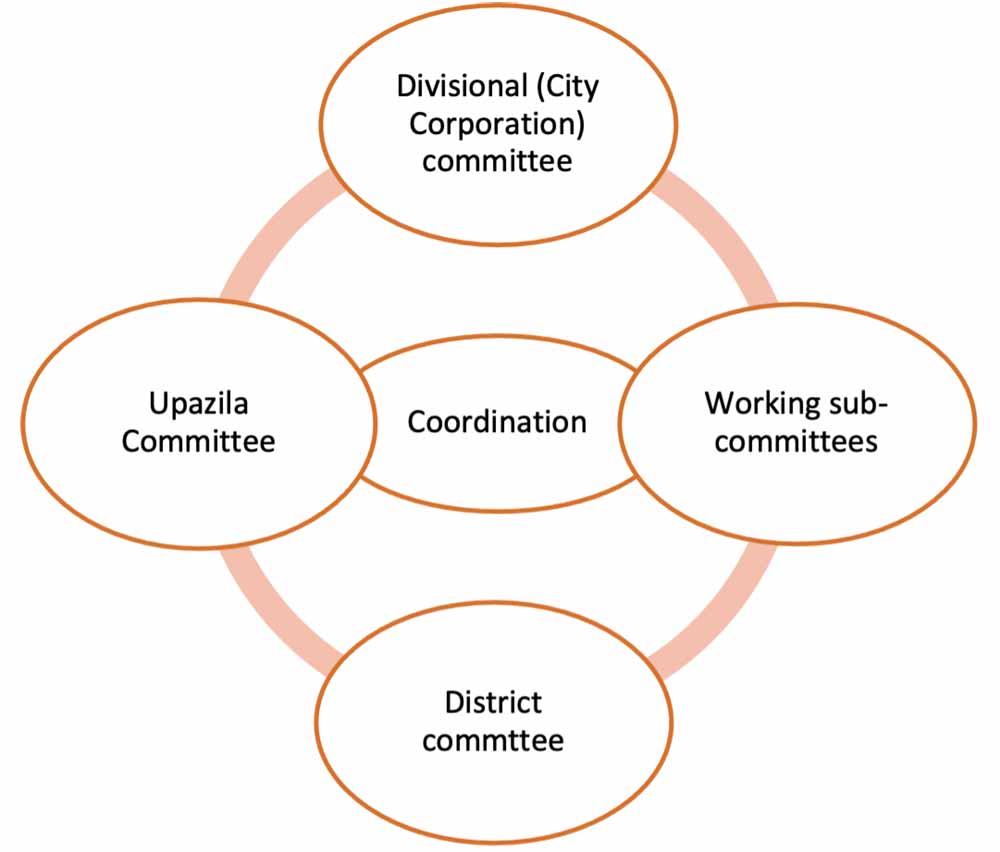
The mapping of relevant stakeholders was conducted with entities like the Directorate General of Primary Education, Directorate General Secondary and Higher Secondary Education, Islamic Foundation, Department of Social Services, OGSB, etc.
A training manual was developed for trainers, vaccinators and volunteers, based on which necessary trainings were carried out.
To generate demand and tackle vaccine hesitancy, the EPI has developed numerous context-specific social and behavioural change materials such as pamphlets, posters, banners and brochures, and distributed them among the relevant bodies. An audio-visual recording (AVR) of the Minister of Health (https://fb.watch/nuJvz94qD6/) was made and circulated in different print, electronic and social media. EPI, DGHS and UNICEF Facebook pages are constantly posting about the upcoming campaign.
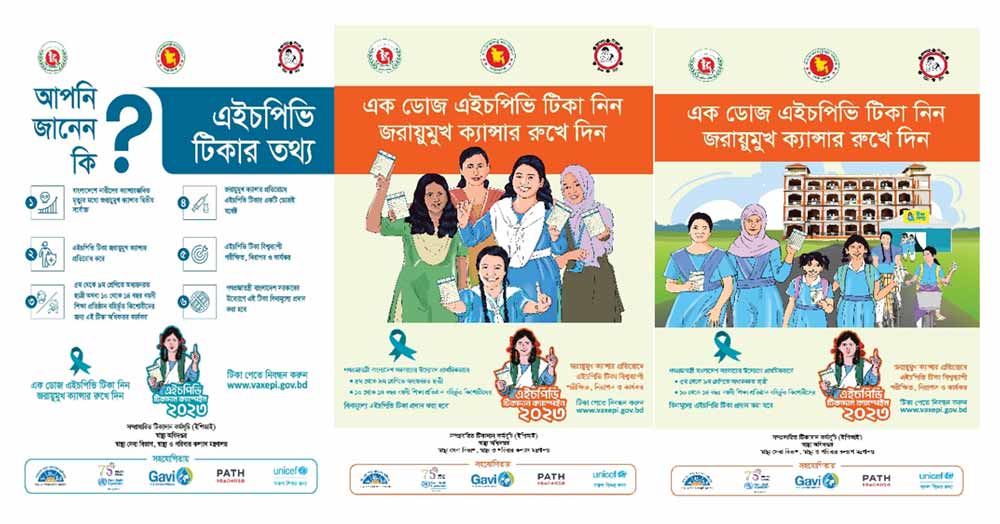
Innovations:
Online registration: In collaboration with the Management Information System (MIS), EPI has developed an online registration system called https://vaxepi.gov.bd, which registers the target population by their digital birth registration number. Girls from poor and marginalised backgrounds will be provided with spot registration.
Microplanning, supervision and monitoring: EPI will adopt the online microplanning and reporting mechanism that was successfully developed and implemented during the last MR campaign. A similar digitised mechanism will be deployed for supervision and monitoring.
Readiness assessment: An Excel-based readiness assessment is currently ongoing at the national and subnational level to monitor and assess the pre-campaign readiness.
Bangladesh is eagerly looking forward to vaccinating its adolescent girls with a dose of safe and life-saving HPV vaccine
Rapid convenient assessment: An app-based rapid convenient assessment will be carried out immediately after each phase.
Bangladesh is eagerly looking forward to vaccinating its adolescent girls with a dose of safe and life-saving HPV vaccine in the coming days, as the country is committed to eliminate cervical cancer in alignment with the Global Cervical Cancer Elimination Strategy by 2030. The rapid roll-out of a vaccine that has proved to be challenging for other countries around the world shows the country's willingness to protect its future generation and keep the promises it made in terms of progress.
Dr Tanvir Hossen is a Deputy Programe Manager in Bangladesh's Expanded Programme on Immunization, and focal point for the HPV vaccine introduction.
